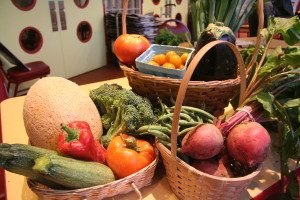Tackling the student stereotype
Alice Turnbull debates whether or not the labels put on our eating habits are deserved…
The classic pot noodle and baked beans-consuming student stereotype has been fed through modern society for generations. Each year, food companies pay homage to universities promoting their cheap, tasty meal deals fuelling the popular belief that students have no time to cook, and eat badly. And to a great extent, we have all been that stereotypical student. I for one unashamedly lived off Dominoes for the entirety of my first year as an undergraduate thanks to the people donned in blue jackets handing out discount Buy One Get One Free vouchers in week one. I simply had no time to even consider a ‘proper meal’ when I had so much socialising *ahem* ‘work’ to do.
However, whilst we can have a laugh here and there about the ‘typical student’ lifestyle, can we really say that, post-first year and taking into account the occasional take-out, the average student lifestyle is that unhealthy? Three years later and moving into my post-graduate studies at a new university, I can safely say that on the whole, the sample of students that I have met
along my way have become increasingly aware of their impact on the environment, and the impact that the food so often marketed towards the student population is having on their bodies.
Now many of you may be thinking that the majority of students you chat to do indeed exist on a diet of baked beans and toast this is not necessarily a true reflection of the percentage of students who have a healthy diet. In an age when one of the biggest concerns of public health is childhood obesity and binge drinking, let alone the ‘meat scandal’ in the European food system, even first years seem to be more conscious of the slogan ‘you are what you eat’.
There is a food revolution going on in the hub of student life, and I happily want to be a part of it. This revolution is happening nationwide. Despite the increase in university fees and financial pressure on students and their lifestyles, student-run farmer markets are popping up all over the country. Initiatives supporting locally sourced produce and environmentally friendly yet affordable fruit and veg are trending in student unions up and down the UK. Granted, translating an eagerness to eat good quality food into practice is easier said than done, and of course none of us are perfect (after a long day at university, Maccy D’s around the corner will do just fine). But it is the long term impact that we, as a student body, should be concerned about, and that’s what the student food revolution has started to acknowledge.
everyone – regardless of their financial background – deserves high quality, affordable food that is environmentally friendly.
So for those of you who are, like me, keen to get involved in this changing ‘food revolution’ there are many way to do so. As soon as I arrived at Warwick University a few weeks ago, I was immediately aware of the great societies you can join which will most certainly support you in achieving a healthy, affordable lifestyle that is environmentally friendly too. People&Planet and the Food Cooperative, accompanied with the ‘sustainable student’ blogs are all great places to start your quest for a good quality lifestyle. It is also worth checking out your local independent shops and stores that support the local economy rather than your average supermarket. You’ll soon find out that it’s far from a financial burden, as well as a really cool way to get to know the area as a student.
Personally, I believe that everyone – regardless of their financial background – deserves high quality, affordable food that is environmentally friendly. The food revolution we are experiencing is an embodiment of this ethos, and I for one hope that it continues to grow. I hope that as a student body we can learn to appreciate the local community and realise that our actions now can make a difference in the future. The classic student stereotype will always stay with us – who wants to really stop eating baked beans when they are so delicious? But our attitudes towards what we eat can most definitely change, and the potential to produce good food is in our hands.



Comments